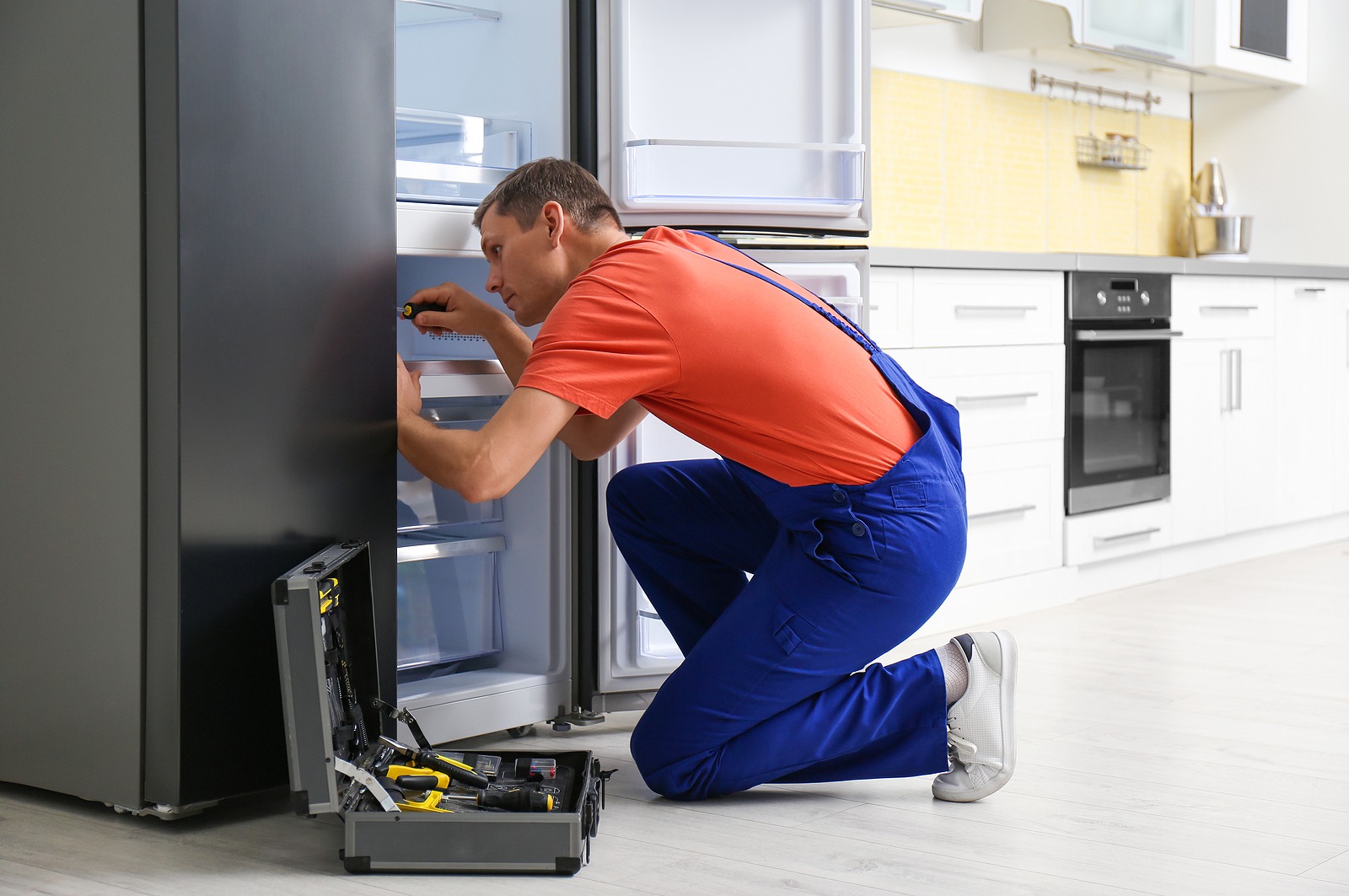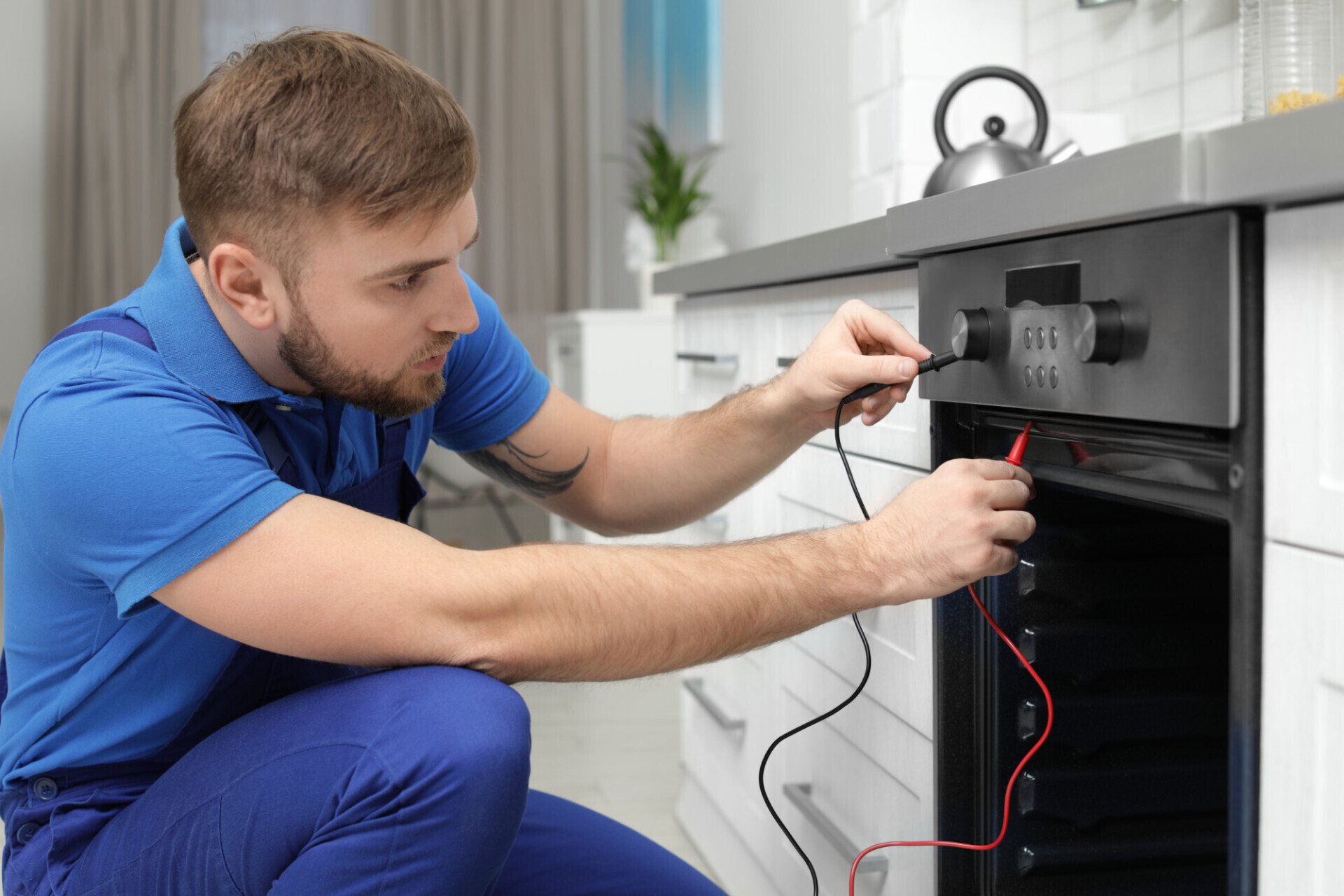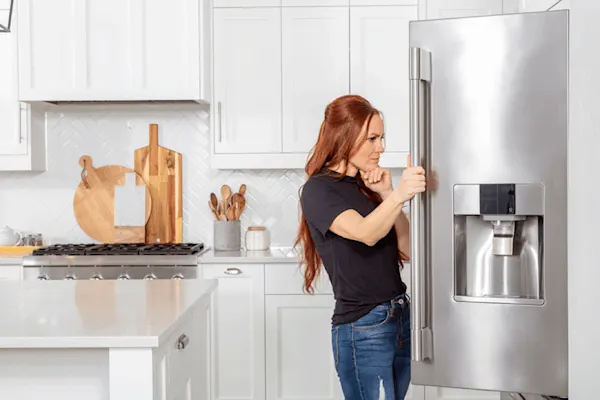The Ultimate Overview to Understanding Appliance Repair at Home
When your refrigerator quits cooling down or your oven rejects to warmth, it can feel overwhelming. Recognizing appliance repair work in your home can save you time and money. You'll learn to recognize signs and symptoms, use vital devices, and adhere to a systematic troubleshooting process. Yet prior to you start, there are important safety and security preventative measures you require to take into consideration. What are one of the most typical issues, and exactly how can you repair them? Allow's check out the basics.
Typical Device Troubles and Their Signs and symptoms
When your appliances begin acting up, it's vital to identify the indicators beforehand. Disregarding them can lead to larger problems and pricey repair services. If your fridge isn't cooling effectively, you may discover warm areas or condensation creating. This can suggest a falling short compressor or a blocked vent.Your dishwasher may reveal problems through unclean dishes or unusual sounds during cycles. If you hear grinding or clanking, it's time to investigate.A washing device that will not spin or drain pipes can leave you with soggy laundry, suggesting a stopped up drain or a malfunctioning pump.Lastly, if your oven's temperature appears off or it takes forever to preheat, you could be managing a damaged thermostat. By staying sharp to these signs, you can resolve concerns before they intensify into major repair services.
Vital Devices for Device Repair Service
When you're tackling device repair services at home, having the right devices is essential. Standard hand tools like screwdrivers and pliers will certainly assist you disassemble and take care of various home appliances, while electrical testing tools assure you're working safely with electrical wiring. Let's go over what you require to start on your repair work trip.
Basic Hand Devices
Having the right devices is vital for efficient home appliance repair work at home. Beginning with a dependable screwdriver set, consisting of both flathead and Phillips types, as screws are usual in home appliance setting up. Pliers are also essential; they assist with gripping, twisting, and cutting wires or little components. A pair of needle-nose pliers can get to limited areas easily. You'll need a great adjustable wrench for tightening up or loosening up nuts and bolts. An utility blade is convenient for cutting with packaging or insulation. Do not forget a durable workbench or surface to securely organize your tools and components. With these standard hand devices, you'll be well-prepared to deal with most home appliance fixings that come your means.
Electric Screening Gadgets
Together with standard hand devices, electric screening devices play an important duty in home appliance repair. These devices help you detect electrical concerns and guarantee home appliances function securely. A multimeter is vital; it gauges voltage, current, and resistance, permitting you to identify problems rapidly. A non-contact voltage tester is an additional essential, letting you spot online wires without making direct get in touch with, boosting your safety. Secure meters are wonderful for determining existing circulation in cables without separating them, conserving you effort and time. Additionally, circuit testers can swiftly examine if outlets are functioning effectively. By utilizing these gadgets, you'll simplify your troubleshooting process and improve your repair service skills, making appliance upkeep a whole lot much easier.
Step-by-Step Overview to Diagnosing Device Issues
When your home appliance breaks down, it can be frustrating, yet detecting the issue doesn't have to be frustrating. You'll learn to determine usual problems and apply reliable repairing strategies. Allow's go through the actions to get your home appliance back in functioning order.
Typical Home Appliance Problems

Troubleshooting Techniques Described

Repairing Major Kitchen Home Appliances: A Closer Look
Have you ever before questioned how to deal with usual problems with your cooking area devices? Fixing major kitchen devices like fridges, ovens, and dishwashers can be much easier than you think. Beginning by identifying the issue-- whether it's a fridge not cooling or an oven that won't heat up. Frequently, a straightforward reset or inspecting the source of power can resolve the issue.For fridges, clean the condenser coils and inspect the door seals. If your stove's not heating, examine the home heating element and thermostat. Dishwashing machines might just require a tidy filter or a reset to get them back at work. Constantly unplug the appliance prior to diving right into repair work to ensure your safety.Don' t neglect to speak with the customer guidebook for particular fixing pointers connected to your design. With a little bit of patience and the right tools, you can confidently deal with device repairs and save cash in the process!

Fixing Washing Appliances: Tips and Techniques
When your washing appliances start acting up, it can really feel overwhelming, yet fixing them does not need to be a headache. Start by checking the power supply. Verify the home appliance is connected in and the electrical outlet is functioning. Next off, check the door or cover button; a damaged button can protect against the device from operating.For washing machines, if it's not spinning, examine for unbalanced lots. Rearranging the garments may resolve the concern. If your dryer isn't home heating, tidy the lint filter and examine the air vent for blockages.Listen for uncommon noises; they can suggest an issue. If your home appliance is leaking, inspect the pipes for splits or loose links. Record any type of mistake codes shown on digital displays, as they can lead you in identifying the issue. Finally, speak with the user guidebook for particular repairing suggestions associated with your design.
Security Precautions to Take Throughout Fixes
Prior to you begin any type of device repair services, it's crucial to prioritize security to protect against mishaps or injuries. Disconnect the device or turn off the circuit breaker to guarantee no power reaches it while you work. Use insulated devices to lessen the risk of electrical shock. Put on safety and security goggles and gloves to safeguard on your own from sharp sides or debris (Dependable Refrigeration & Appliance Repair Service Dryer repair article source near me).Make specific your work space is clean and well-lit, so you can see what you're doing. Keep kids and pet dogs away from the location to avoid disturbances and possible dangers. If you're taking care of gas appliances, be extra mindful; check for leakages before proceeding.Take your time, and do not hurry via repairs. If you really feel unclear concerning any kind of action, it's much better to stop and research than to guess. Adhering to these preventative measures will certainly aid create a much safer setting for your DIY appliance fixing task
When to Call an Expert for Help
Exactly how do you know if it's time to employ a specialist for appliance repair services? If you have actually tried basic troubleshooting without success, it's a clear indicator. If your home appliance still will not begin or reveals uncommon noises after resetting it, do not hesitate to seek professional help.When you observe leakages, smoke, or burning scents, focus on safety and security and call a professional right away. These concerns can lead to more significant damages or position risks to your home.Also, if your home appliance is under guarantee, speaking to a specialist is usually the most effective course. They can ensure that repair services won't void your warranty, conserving you cash in the lengthy run.Finally, if you're uncertain or uncomfortable with complicated repairs, it's important to leave it to the professionals. Bear in mind, tackling complex problems without the ideal expertise can bring about costly mistakes. Trust a professional when doubtful!
Regularly Asked Questions
Exactly How Can I Prevent Device Issues in the Future?
To avoid device issues in the future, you ought to do routine maintenance, check for wear and tear, clean filters, and avoid overloading. Remaining aggressive will assist extend their lifespan and maintain them running smoothly.
What Are one of the most Usual Do It Yourself Appliance Repair Work Mistakes?
You could forget safety preventative measures, miss fixing actions, or use incorrect tools when attempting do his explanation it yourself device repair services. Rushing the procedure or disregarding manufacturer standards can lead to more significant concerns and expensive errors. Keep individual and educated!
Just how Do I Know if a Component Demands Replacement?
You can tell if a part requires substitute by checking for uncommon noises, leaks, or irregular performance. If the appliance battles to operate properly or shows visible damages, it's most likely time for a substitute.
Can I Use Generic Parts for Home Appliance Repair Works?
Yes, you can make use of common parts for device fixings, however ascertain they're suitable - Dependable Refrigeration & Appliance Repair Service Washer repair near me. Common components could conserve you cash, yet they might affect performance or durability, so weigh your alternatives very carefully prior to choosing
What Service Warranties Cover Appliance Repair Works?
The majority of home appliance guarantees cover repair services for making issues, but they commonly omit damages from misuse. Check your warranty terms very carefully, as some may require making use of qualified professionals and original parts for protection to remain valid.